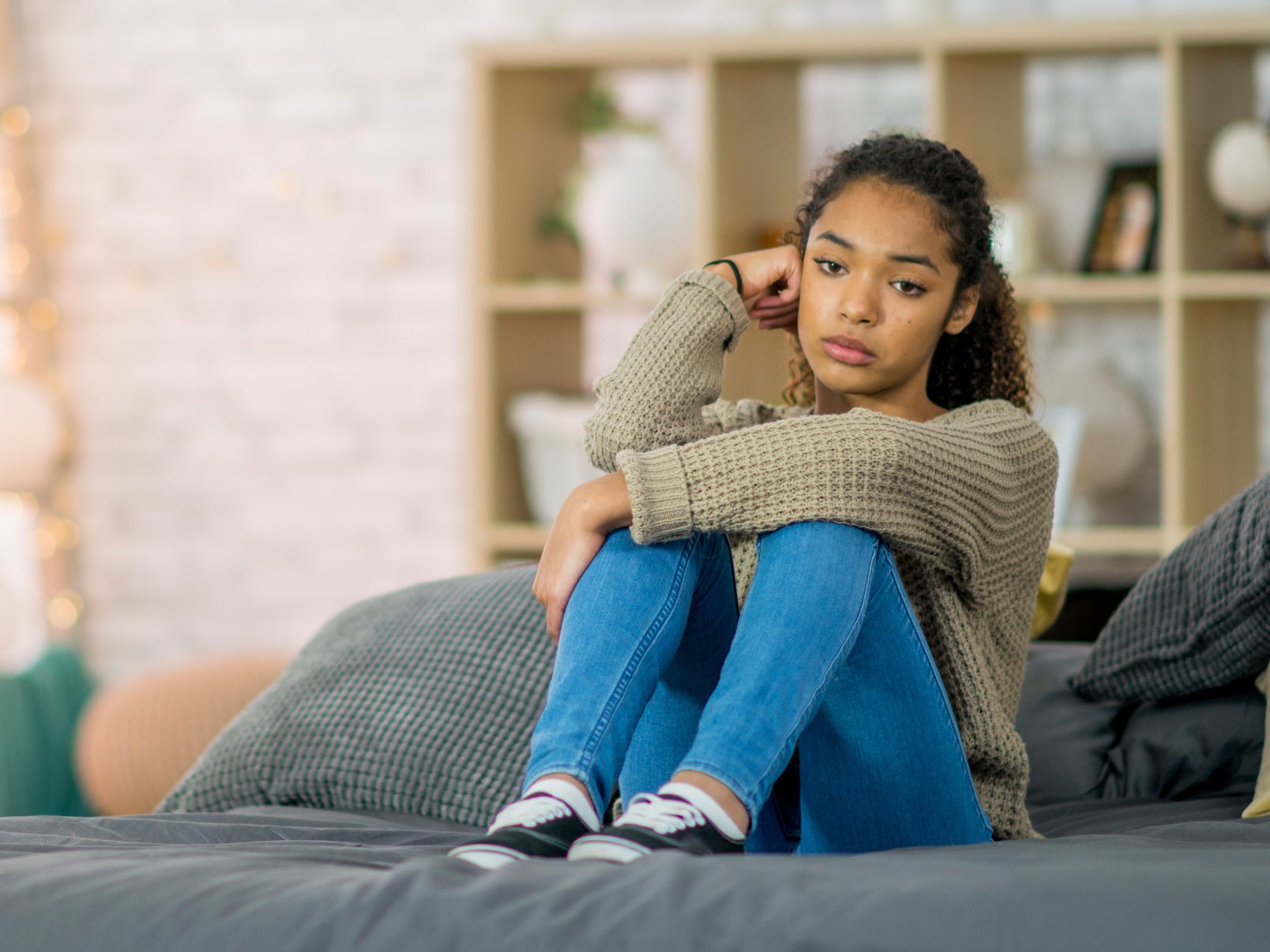40% of girls in UK feel mental health has worsened in lockdown, study finds
‘There is an urgent need for policy makers in the UK to ensure girls’ voices are heard throughout this crisis and afterwards,’ says Plan International UK CEO

Your support helps us to tell the story
From reproductive rights to climate change to Big Tech, The Independent is on the ground when the story is developing. Whether it's investigating the financials of Elon Musk's pro-Trump PAC or producing our latest documentary, 'The A Word', which shines a light on the American women fighting for reproductive rights, we know how important it is to parse out the facts from the messaging.
At such a critical moment in US history, we need reporters on the ground. Your donation allows us to keep sending journalists to speak to both sides of the story.
The Independent is trusted by Americans across the entire political spectrum. And unlike many other quality news outlets, we choose not to lock Americans out of our reporting and analysis with paywalls. We believe quality journalism should be available to everyone, paid for by those who can afford it.
Your support makes all the difference.Around 40 per cent of girls in the UK feel their mental health has worsened since lockdown was established, a study has found.
New research published by global children’s charity Plan International UK has highlighted the significant impact the coronavirus pandemic has had on girls across the country.
After surveying more than 1,000 girls aged between 14 and 21 years old in April 2020, the organisation concluded that barriers to girls’ rights have been “exacerbated” by the Covid-19 crisis in several ways.
Of the respondents, four in 10 said their mental health has declined since lockdown was announced on Monday 23 March.
Among these participants, 41 per cent said their mental health felt worse due to not being able to attend school, 43 per cent said they felt they don’t have a purpose and 30 per cent worried about not being able to sit their exams.
Furthermore, 37 per cent of the girls who reported their mental health worsening said this was due to social media, with one in four stating they have experienced at least one form of abuse, bullying or sexual harassment online during the time period.
In addition to detrimental impact on girls’ mental health, the study conducted by Plan International UK found that lockdown has affected accessibility to period products.
According to the charity’s findings, almost a third of girls have struggled to either afford or access sanitary products while in lockdown.
Furthermore, one in 10 girls and young women said they have not been able to access their usual form of contraception.
Despite being confined to their households for the majority of the time, the study also discovered that one in 5 girls have experienced public sexual harassment during lockdown.
Just over a quarter of the respondents said they now feel less safe going outside than they did before the pandemic occurred, with 52 per cent saying this was because there were not as many people around who could help if needed.
Speaking about the study’s findings, Plan International UK CEO Rose Caldwell said the statistics “should serve as a real eye-opener to the porblems girls are facing up and down the country”.
“Our 2020 ‘State of Girls Rights in the UK’ report, published in January, provided a comprehensive assessment of the areas where more work is needed to ensure that every girl in this country can have her rights met. We are concerned that this pandemic could set us back still further,” Ms Caldwell stated.
“There is an urgent need for policy makers in the UK to ensure girls’ voices are heard throughout this crisis and afterwards, especially girls who are vulnerable and often the least heard.
Ms Caldwell added that it is essential not to “turn back the clock on girls’ rights” as the Covid-19 pandemic continues.
Join our commenting forum
Join thought-provoking conversations, follow other Independent readers and see their replies
Comments